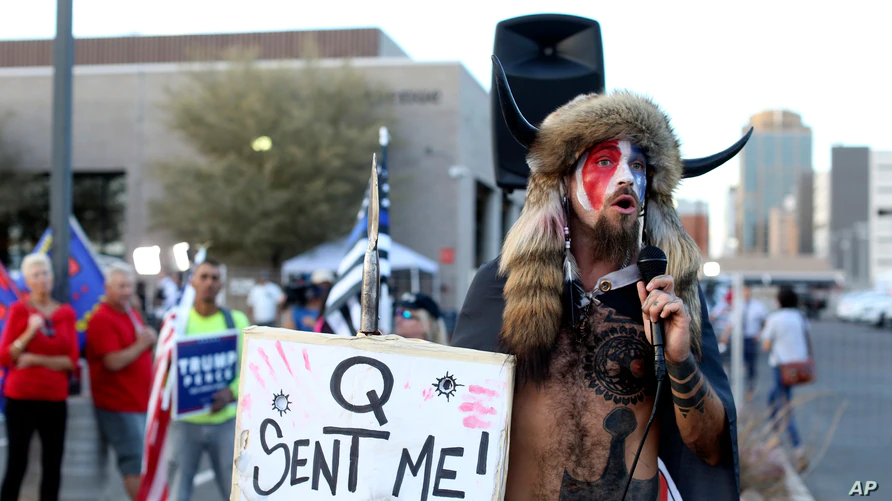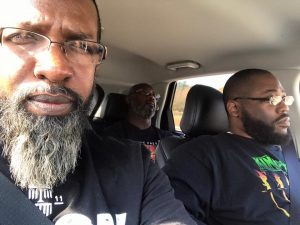Brian Birmingham interviews Jitarth Jadeja
BB: How long were you involved?
JJ: I was a full fledged QAnon believer from January 2018 to June 2019, so 1.5 years.
BB: Why did you stop?
JJ: There’s no single answer to this. First of all, my circumstances changed, I was diagnosed and received medication for Bipolar-2 which in combination with my ADHD treatment shifted my mindset. This was followed by a reduction in my social isolation because of my chaotic mental state.
This then led me to question a few things I had previously accepted without consideration. But it was also inconsistencies within Q’s own rules that they had set out. It started with a piece by Mike Rothschild discussing the sealed indictments Q touted. Which snowballed into eventually coming across a video debunking the last and most significant Q proof I had which was the ‘tip top tippy top shape’ phrase used by Donald Trump.
BB: Did you believe in other things labeled conspiracy theories before QAnon? What were those other conspiracy theories?
JJ: When I found Q I was deep into a conspiracy rabbit hole. That fall really started with Trump’s election and spiraled quickly into Pizza-gate and interdimensional aliens amongst many others.
BB: What do you think now about those conspiracy theories?
 JJ: I hate conspiracies. I don’t even want to discuss them; I can’t stand any of them and looking back they’re so idiotic and complicated with bigger more grandiose conspiracies needed to explain initial conspiracies. I hate that.
JJ: I hate conspiracies. I don’t even want to discuss them; I can’t stand any of them and looking back they’re so idiotic and complicated with bigger more grandiose conspiracies needed to explain initial conspiracies. I hate that.
BB: What drew you into the world of conspiracy theories?
JJ: I needed to feel special, I wanted answers, I wanted to mean something, be significant in some way, to know that despite being a consummate failure in every aspect of my life from career, education and relationships, that there was still some way I could not feel like someone on the lowest rung of the social hierarchy that I was.
BB: Do you think there is a type of person drawn to conspiracy theories?
JJ: I don’t know, I don’t think so, there’s correlation factors like say mental health or social isolation but these are correlations. The overwhelming majority of people with mental health issues don’t fall into QAnon. Ditto with social isolation. Just because they were factors for me doesn’t mean they would be for anyone else so it’s not possible to build an archetype of such a person with any certainty.
BB: Do you think Info Wars and Alex Jones is a scam?
JJ: No. I think he genuinely believes in what he says. He’s even been correct about a few things such as Bohemian Grove [sic]. And even his products that he sells, maybe it’s just placebo but they do work as advertised so no I don’t think it’s a grift. I think he’s connecting dots and making assumptions where he shouldn’t.
No one is more indoctrinated than the indoctrinator.
BB: Have you lost money through believing in conspiracy theories?
JJ: Not really but then I never had money to begin with or I’m sure I would have. I lost time, which is something you can’t buy.
BB: How do you think believing in conspiracy theories hurts people?
JJ: I think when you perceive the world that is so juxtaposed to the one that others see, not slightly, not a small shift, but almost completely opposite it changes your behavior and your actions. That is the real damage of such conspiracy theories, it’s not the beliefs really, it’s the behavioral change that occurs.
BB: What advice would you give to people caught up in conspiracy theories right now? What do you think they must consider? Why?
JJ: You must always genuinely consider the fact that you could be wrong. If you are sure you’re not wrong, then you have a problem.
BB: What advice would you give to someone that has a family member or friend caught up in conspiracy theories?
JJ: I wouldn’t know, it depends on the person, their actions and behaviors. Some I would say to focus on their change as a person and remind them that their beliefs are not an excuse to behave badly towards others.
To others I would say distract them, get them a hobby, find a way to get them to spend less time-consuming conspiracy related media.
And to others I would say run, run as far as you can, as quickly as you can, the person you knew is dead, they are gone and they are never coming back.
BB: Do you think QAnon will ever end? Will it go on indefinitely?
JJ: Everything ends, of course it will end. As long as Trump is around and in the picture it won’t though and before it ends, ironically there will almost be a personal reckoning, a “great awakening” of a different kind that will need to be grappled with. There will be fallout, people will get hurt, people will hurt themselves, hurt others, that cannot be stopped. We’ve crossed the Rubicon, there’s too many people in it now.
BB: Why do you think people often hop from one conspiracy theory to another?
JJ: It’s almost like a drug, the first time you read something that makes your head explode released a massive amount of dopamine. It’s like people keep needing that hit, that mind blowing effect and keep looking for it with other conspiracies. But at the same time, they need a bigger and bigger hit so they find bigger and bigger conspiracies.
BB: Do you think that you are done with the world of conspiracy theories? Why?
JJ: 100%
I hate them, I hate them all, from Epstein to UFOs, I don’t care, I don’t want to talk about it, I don’t want to know about it, I don’t want anything to do with it.
BB: Did believing in conspiracy theories make you happy? Did it make you sad? Anxious and paranoid?
JJ: It made me all of that and more. It gave me hope that somehow, we could build a better future for all of humanity of we just ousted the bad guys. It also made me sad that people couldn’t see the truth I could. I was agitated, anxious, paranoid, aggressive and almost manic in my behaviors. I couldn’t talk about anything else to anyone, it was like being possessed.
BB: Is it healthy to believe in conspiracy theories or can it lead to extreme paranoia and anxiety?
JJ: I don’t know what that means to “be healthy,” I don’t think you can proscribe such a description to a belief. Beliefs are irrelevant, it’s the behavior that changes that is either healthy or unhealthy. You can believe anything you want but it’s your actions that come after which is what does damage. Why does one person who believes the same thing as another, not behave in the same way? End
Note: Jitarth Jadeja is a former follower of QAnon who now speaks out against the movement. Brian Birmingham is a cult researcher and graduate of the University of Massachusetts in Boston with a BA in Psychology and Sociology.






